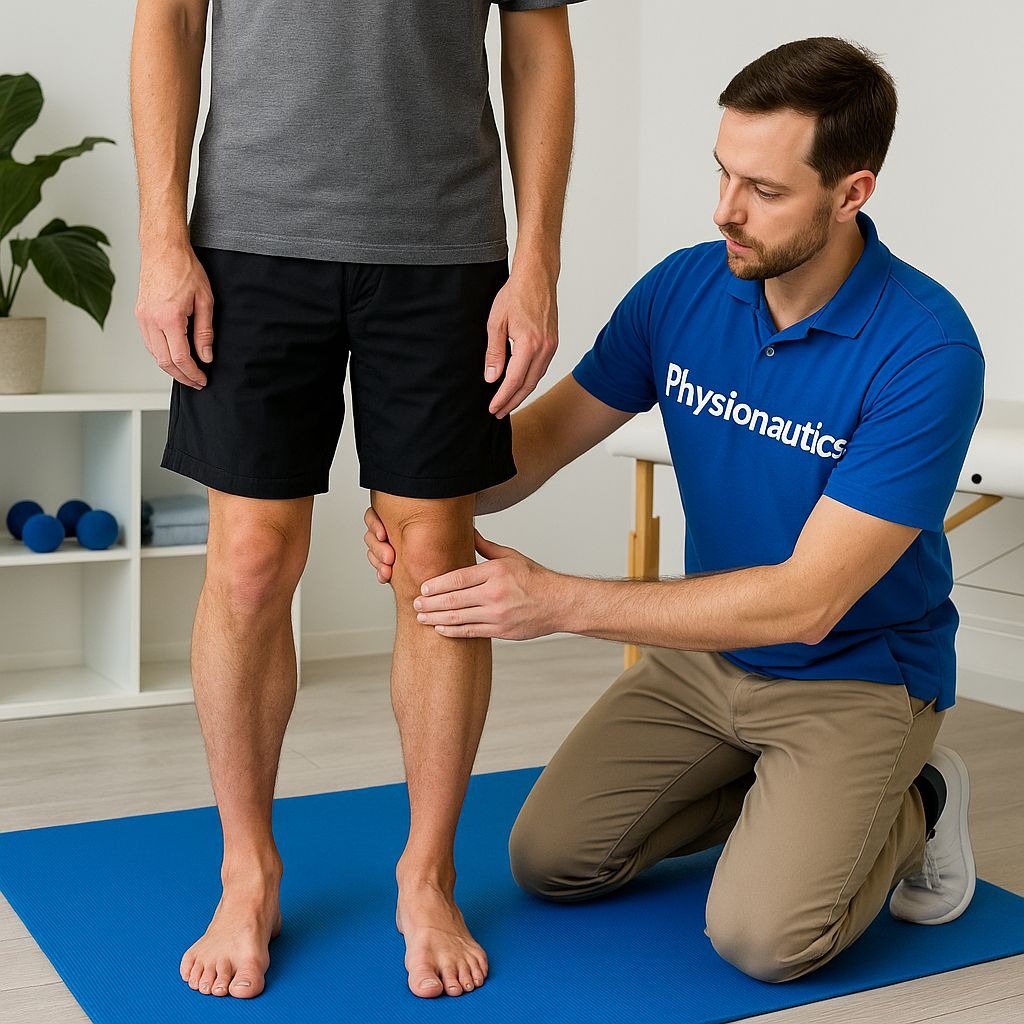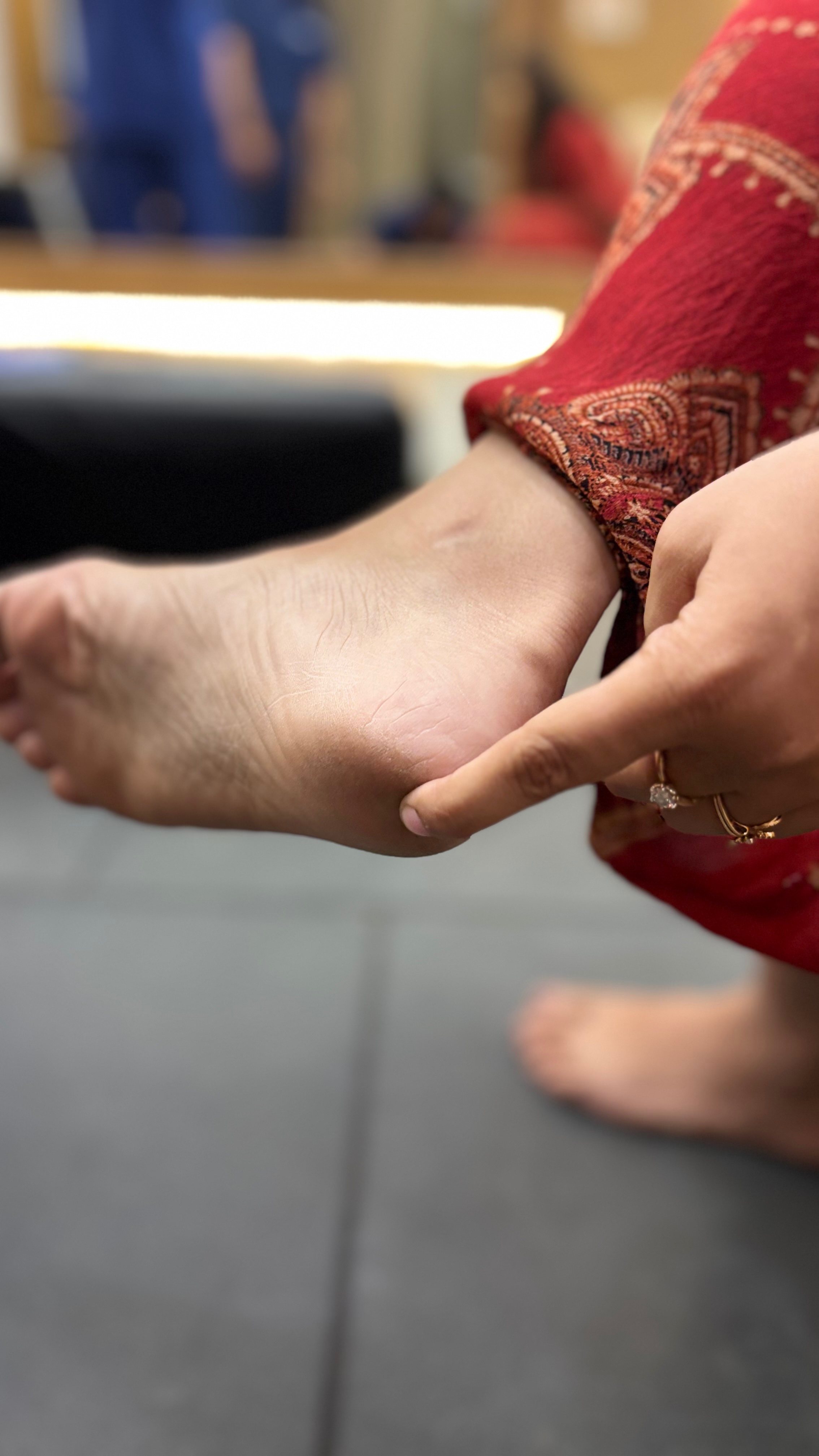



Best treatment for heel spur Heel pain is one of the most common complaints in physiotherapy clinics, and heel spur is a frequent underlying cause. Whether you’re a sportsperson, working professional, or elderly individual, the sharp pain under the heel can affect your walking, standing, and quality of life. Let’s explore what a heel spur is and how Physionautics offers the most effective treatment options. A heel spur is a bony outgrowth that forms on the underside of the heel bone (calcaneus). It typically develops due to chronic stress or strain on the foot muscles, ligaments, and the plantar fascia — the tissue that connects your heel to the front of your foot. Over time, calcium deposits build up and form a pointed bony structure, called a spur. Heel spurs are commonly associated with plantar fasciitis, although they can occur independently. Common Symptoms of Heel Spur: • Sharp or stabbing pain in the heel, especially with the first steps in the morning • Inflammation or swelling under the heel • A visible bony protrusion in some chronic cases • Pain that worsens after prolonged activity or standing Who Is at Risk? • People with flat feet or high arches • Athletes involved in running or jumping sports • Those who wear poorly fitted or unsupportive footwear • Overweight individuals • People who stand for long periods Our goal is to relieve pain, reduce inflammation, and restore function — without the need for surgery. Here’s how we manage heel spur effectively: Pain Relief Techniques: • Ultrasound therapy to reduce deep tissue inflammation • Laser therapy for pain modulation • Cryotherapy (cold therapy) during acute flare-ups Manual Therapy & Mobilization: • Soft tissue release to relieve tight plantar fascia • Joint mobilization to improve foot and ankle mechanics Stretching & Strengthening: • Plantar fascia and calf muscle stretches • Strengthening exercises for intrinsic foot muscles Custom Orthotic Support: • Footwear advice and custom insoles to reduce heel pressure Kinesiology Taping: • To offload stress from the heel and support the arch Shockwave Therapy (Advanced Option): • For chronic cases not responding to traditional care
We hate spam too.